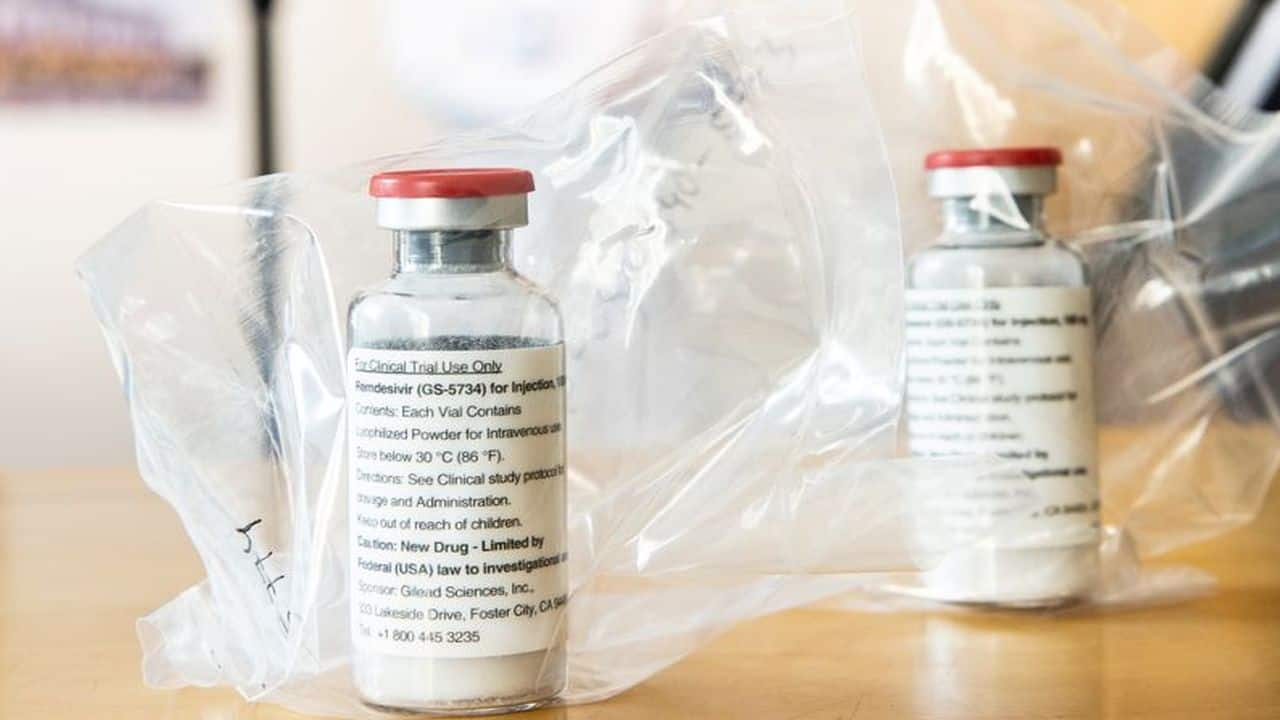The Central Drug Standard Control Organisation (CDSCO), on June 14, said it was processing the applications made by six companies seeking permission to manufacture and market Gilead's Remdesivir in India on "priority" and in accordance with the "laid down procedures".
Six Indian companies have applied to the Indian drug regulator for marketing authorisation Hetero, Cipla, BDR Pharmaceuticals, Jubilant Life Sciences, Mylan and Dr. Reddy's Labs have also applied. Five of these companies excluding BDR have also have licensing agreement with Gilead. Remdesivir, the experimental antiviral drug is now used in treatment of in COVID-19 patients with moderate disease or those on oxygen.
"The companies are at various intermediate stages of inspection of manufacturing facilities, verification of data, stability testing, emergency laboratory testing as per protocol etc," said CDSCO in a statement.
"Being an injectable formulation, testing for assay, identity, impurities, bacterial endotoxin test and sterility become very critical for patient safety and this data need to be provided by the companies," it added.
CDSCO said it was awaiting the data and is providing complete support to these companies.
Please read here on the delay of approval.
The regulatory agency has already waived off the requirement of local clinical trials for these companies by invoking emergency provisions.
"The regulatory processes are being facilitated and expedited by CDSCO," the statement said.
Gilead, the innovator of the drug, received conditional approval from DCGI on June 2 under the accelerated review process. It was granted a waiver to conduct clinical trials in India.
The company said there was limited supply of the drug at present and the new supply could possibly start to become available from July.
CDSCO said it had granted permission for Gilead's Remdesivir after due deliberations, under Emergency Use Authorization on June 1 in the "interest of patient safety and obtaining further data".
The regulator also said the first three batches of imported consignments were to be tested and reports submitted to CDSCO. It is still not clear in the CDSCO statement whether these batches are from Gilead or Bangladesh companies.
CDSCO's statement comes as pressure is building up on regulators to quickly approve the applications of Indian companies.
The Maharashtra government is in the process of importing the drug from Bangladesh companies and is also actively considering government hospitals and institutions to permit import of drugs in small quantities for use on a compassionate basis. Bangladesh companies have no regulatory license to distribute the drug in India.
Maharashtra has reported 1,05,000 cases and 3,830 deaths due to COVID-19, the highest in the country.
Read here and here about Bangladesh companies and whether they have license or not to sell in India.
CDSCO said the Remdesivir should be used for treatment of suspected or laboratory confirmed COVID-19 in adults and children hospitalised with severe disease is subject to the following conditions that include written informed consent of each patient required, results of additional clinical trials to be submitted, active surveillance data of all treated patients to be submitted, risk management plan along with active post marketing surveillance and reporting of serious adverse events also to be submitted.
Discover the latest Business News, Sensex, and Nifty updates. Obtain Personal Finance insights, tax queries, and expert opinions on Moneycontrol or download the Moneycontrol App to stay updated!









